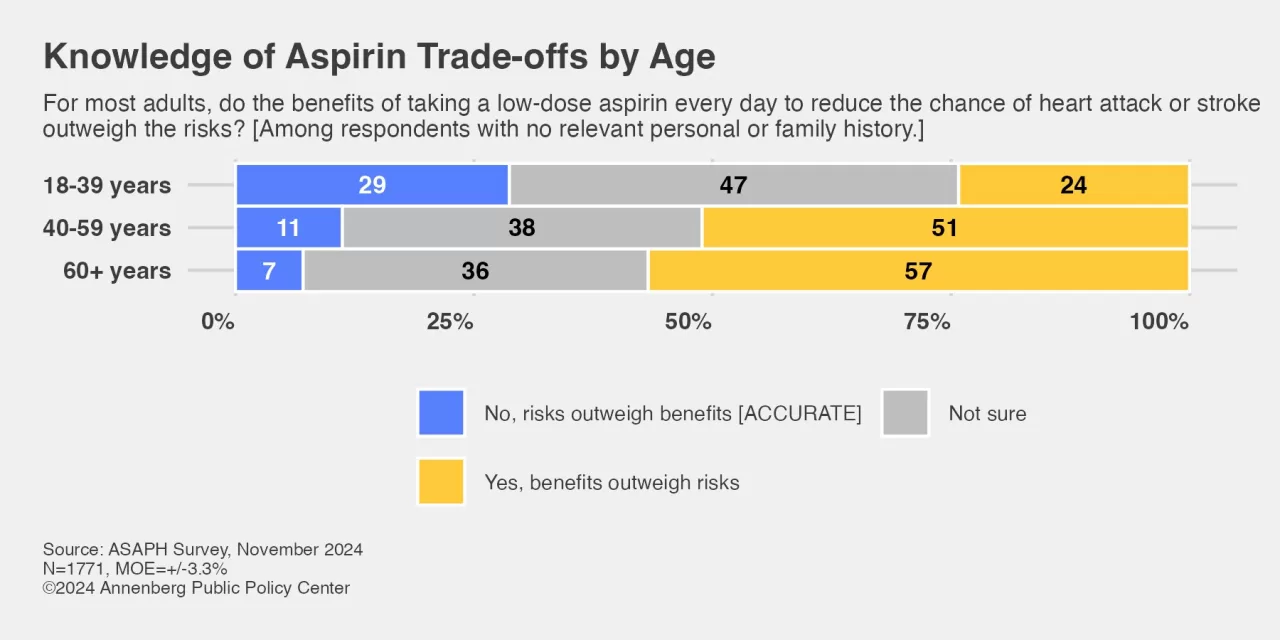Nearly five years after new guidelines were issued, a significant portion of U.S. adults continue to misunderstand the risks and benefits of daily low-dose aspirin use, according to a recent survey by the Annenberg Public Policy Center (APPC) of the University of Pennsylvania.
In March 2019, the American College of Cardiology and the American Heart Association (AHA) updated their advice, no longer recommending that healthy adults over the age of 70 take low-dose aspirin routinely. The new guidelines emphasized that for many individuals, the risks—primarily gastrointestinal bleeding—outweigh the potential benefits of heart attack and stroke prevention.
However, the survey reveals that nearly half (48%) of U.S. adults still mistakenly believe that for most people, the benefits of daily aspirin use outweigh the risks. This is despite the fact that medical recommendations have shifted, with the U.S. Preventative Services Task Force, in 2022, recommending against starting aspirin use for primary prevention in adults aged 60 and older without a history of cardiovascular disease.
The survey, which included 1,771 adults, also found that nearly 1 in 5 respondents with no personal or family history of heart attack or stroke report regularly taking aspirin, with some as frequent as daily use. Among those who lack such a history, 43% still believe that the benefits of aspirin usage surpass the risks.
Dr. Kathleen Hall Jamieson, director of APPC and the survey’s lead, remarked, “Habits backed by conventional wisdom and past advice are hard to break. Knowing whether taking a low-dose aspirin daily is advisable or not for you is vital health information.”
The historical rationale behind aspirin use for cardiovascular prevention was that the medication acted as a blood thinner, helping to prevent clots that could lead to heart attacks or strokes. While low-dose aspirin remains a critical strategy for individuals with diagnosed cardiovascular conditions, the current guidance for healthy adults emphasizes caution.
The survey also reveals that younger respondents (18-39 years) are more likely to understand that the risks of aspirin use outweigh the benefits, with 29% of them answering correctly. In contrast, only 7% of those aged 60 and older responded accurately, suggesting a generational difference in understanding the new guidelines.
The APPC survey was conducted in November 2024 and carries a margin of error of ±3.3 percentage points. The findings highlight the ongoing need for public education on the current health recommendations surrounding aspirin use.
Disclaimer: This article is based on a survey conducted by the Annenberg Public Policy Center and may not reflect the most up-to-date health advice. Always consult with a healthcare provider for personalized medical recommendations.











